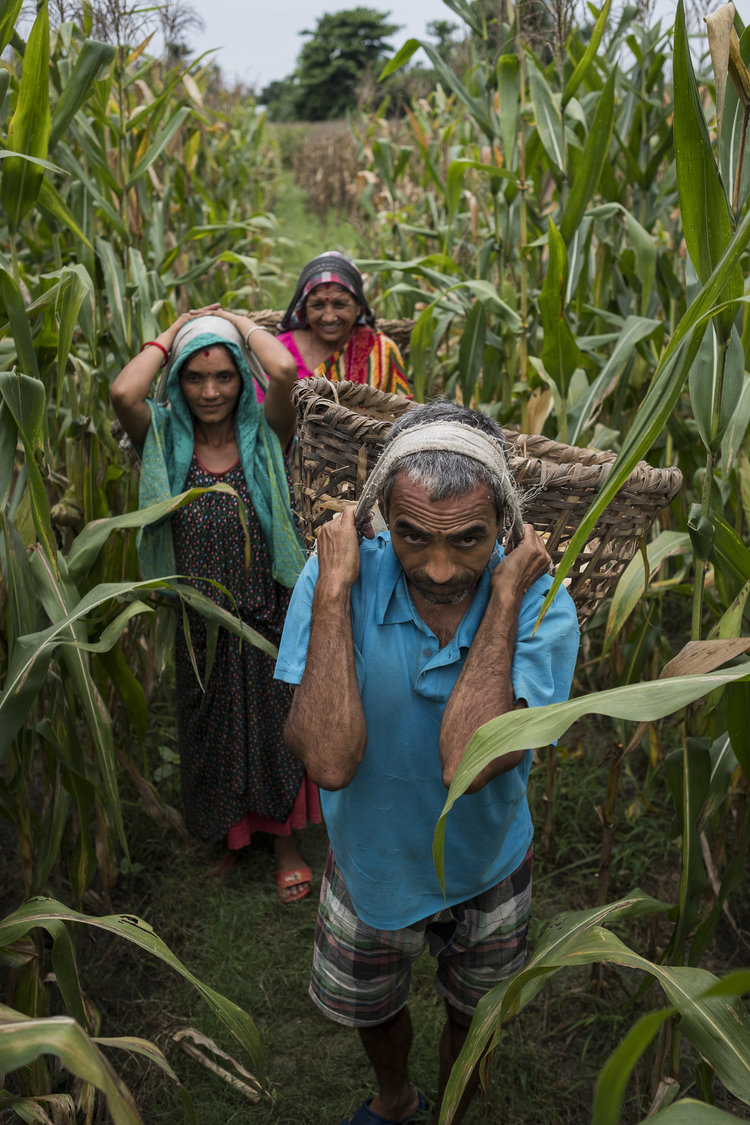Component 3
Policy and institutional innovations for scaling

Objective
To create a more conducive enabling environment for sustainable food systems by building capacity within district, state and national agencies in the EGP to identify and promote institutions that foster successful intensification, integrated decision making, inclusiveness and strategic planning in agriculture.
Key Activities
Comprehensive mapping of the array of institutions that influence farm-level choices across local and district scales, against the specific national objectives of increased intensification, integrated decision making and inclusiveness respectively.
Using a sub-set of domain examples, the performance of different institutional designs and their related hierarchies were empirically scrutinised. The domains covered information transfer; water management options under different rights and tenures; and risk management.
Supported partners to strategically plan for and implement transformational change at provincial levels in Nepal, using agricultural mechanisation as a case study.
Lead
University of South Australia (Professor Lin Crase); CIMMYT
Key Partners
University of South Australia
-
IFPRI
-
Bangladesh Agricultural University
-
FAO
-
CIMMYT
-
Department of Agriculture Nepal
Delivery Mechanisms
This component was delivered through two projects. The first, led by the University of South Australia, sought to build on the existing understanding of the benefits of intensification (CASI), to consider the interactions with integrated decision making generally and the need for inclusiveness. It did this through an institutional lens, focusing on the rules, conventions and intermediaries (government, market-based and civil society) that link policy proclamations to on-ground choices by farmers. The specific areas of interest include institutional arrangements to optimise knowledge transfer with a focus on gender-sensitive options, water rights (in particular for women and tenant farmers) and responses to risk and uncertainty.
A second project led by CIMMYT aimed to fill the gap between production and implementation of recommendations related to scaling CASI developed within Phase 1. There remains a gap in how to ‘put into action’ such recommendations, and as such there remain significant researchable questions relating how to strategically plan for and implement transformational change at provincial levels.
This project aimed to address this gap through the production of participatory roadmaps. Roadmapping is a flexible planning technique to support strategic planning and programming. This process was developed and applied to two newly formed provinces in Nepal. It explored the pathways for increased CASI mechanisation through a series of activities to improve linkages and capacity to create and maintain enabling environments. The project addressed a core need in developing processes that engage stakeholders at multiple scales to facilitate broad impact from agricultural mechanisation.
Commissioned Projects
Institutions to support intensification, integrated decision making and inclusiveness in agriculture in the East Gangetic Plain
This project led by University of South Australia aimed to develop capacity within district, state and national agencies in the EGP to identify and consistently promote institutions that foster the “3 I’s”” (intensification, integrated decision making and inclusiveness).
Sustainable Agricultural Mechanisation in the EGP: Facilitating change through institutional innovation
CIMMYT’s project aimed to support partners to strategically plan for and implement transformational change at provincial levels in Nepal, using agricultural mechanisation as a case study.